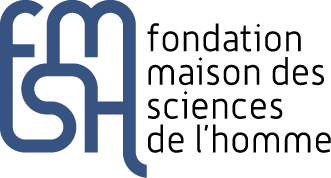Middle East and historical consciousness
Proche-Orient et conscience historique. Entretien
Résumé
According to Georges Corm, it was too early to be able to analyze and understand all the dimensions of the Arab revolts during our meeting, inscribed in the wake of his conference untitled: “The Negative Influence of the Dichotomy Orient/Occident on the Evolution of the Human Sciences”. Five domains were retained in order to understand these unexpected movements, more than unpredictable, in which women had for the first time a very important place in the public space. The course of G. Corm and its context (I), as well as the highlights noticed in two of his works (II), were privileged in the first part that unrolled in the form of a classical interview in order to allow the reader to enter the scientific approach G. Corm and the originality of his contribution, noticed specifically in two of his most recent works (2009 et 2010). From the position of History to that of Anthropology facing the present Nation-States in Europe and the Orient (III) comes out the notion of “historical void”, on which the great media systems and a number of academic analysis elaborate the problems they treat, according to G. Corm, so much so that there is no depth in the attempt of evalua-tion of the complexity of a situation; this brief passage constitute a kind of bridge between the first and second part of our meeting – which slowly took on the turn of an interview/exchange on two successive themes: imaginary fracture between the Orient and the Occident, secularism, Mediterranean (IV ), then around the Historical subject (V).
De l’avis de Georges Corm, il était trop tôt pour pouvoir analyser et comprendre toutes les dimensions des révoltes arabes lors de notre rencontre, inscrite dans le sillage de sa conférence intitulée «L’influence négative de la dichotomie Orient/Occident sur l’évolution des sciences humaines». Cinq axes ont été retenus en direction d’une compréhension de ces mouvements imprévus, plus qu’imprévisibles, dans lesquels les femmes ont tenu pour la première fois une place très importante dans l’espace public. Le parcours de Georges Corm et son contexte (I), ainsi que des temps-forts remarqués dans deux de ses ouvrages (II), ont été privilégiés dans la première partie qui s’est déroulée sous la forme de l’interview classique afin de permettre au lecteur d’entrer dans la démarche scientifique de Georges Corm et l’originalité de son apport, repérable notamment dans deux de ses ouvrages récents (2009 et 2010). De la position de l’histoire et de l’anthropologie face aux Etats-nation actuels en Europe et en Orient (III) découle la notion de «vide historique», sur lequel les grands systèmes médiatiques et nombre d’analyses académiques élaborent les problèmes qu’ils traitent, selon Georges Corm, si bien qu’il n’y a aucune profondeur dans la tentative d’évaluation de la complexité d’une situation ; ce passage bref constitue une sorte de pont entre la première et la seconde partie de notre rencontre - laquelle a revêtu peu à peu la tournure d’un entretien/échange sur deux thématiques successives : Fracture imaginaire entre Orient et Occident, laïcité, Méditerranée (IV), puis Autour du sujet historique (V).
Origine : Fichiers produits par l'(les) auteur(s)
Loading...





